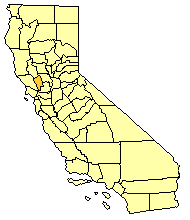 Napa County
Napa County
Charlie Toledo, CAWA Napa County Policy Chair, WIN Co-Chair, Director Suscol Intertribal Council
California Women’s Agenda (CAWA) 2010 – 2015
NAPA County Report
CAWA Policy Chair Charlie Toledo
Progress/Accomplishments
We do have many agencies, who work collaboratively and very
cooperatively to provide services to those who have been
victimized, are low income or at risk We also have very generous
individuals, foundations and funders who provide financial support to
many of these organizations. We are doing prevention work in
schools and the community for an “up- stream” approach to safety.
Two hospitals provide Health Care and one overwhelmed Lowincome
clinic.
1. Upgraded mass transit plan with East- West corridors finally offering
connections plus enhancement to North-South corridors in intra-city
connections
2. Men are more involved in childcare and transportation of children.
Open School enrollments so families can transfer to schools of
choice. Many options of care for at-risk Youth.
3. One Community College and with many alternative opportunities
for extended education and work force re-retraining.
4. Native Americans finally included in Mental Health Funds for
Prevention & Intervention focus on core causes of Mental Health
issues plaguing Native Americans: have highest suicide rate of any
ethnic group in world. Plus have lowest life expectancy for any
ethnic group in United States-48 years of age. With current contracts
capacity to collaborate and network w/regional agencies for
community based wellness.
See the PDF above for the full report.
______________________________________________________________________________
Uganda Convening
August 20, 2005
Sponsored by WIN/CAWA, Suscol Intertribal Council
held in Yountville , California
by Charlie Toledo, Co-Coordinator, Napa County
Mimi Formosa, Co-Coordinator
Intention: 1) Introduce and dialogue with Human Right’s Activist Lydia Bakaki and Honorable Annette Mukabera from Uganda, East Africa.
2) To set goals for next steps for women in Napa County.
25 women leaders attended.(representatives from Napa Valley Community College & chapter of AAUW,)
Charlie Toledo of Suscol Inter-Tribal Council (co-sponsor) welcomed everyone and introduced keynote speakers Lydia Bakaki and Honorable Annette Mukabera from Uganda, East Africa. They were here for a Bay Area Leadership Conference (Global Women’s Leadership Center, Santa Clara University) which WIN had facilitated scholarship for, and also the annual WIN Board meeting. Each spoke for a few minutes about their experience as activists effecting significant change in their country.
Lydia’s efforts have concentrated on helping Ugandan women to gain co-ownership of land with their husbands. She described a law that would have allowed co-ownership passing briefly but then being undermined immediately afterwards and the resistance among males in leadership to the phenomenon of equality among women. There is another bill following an initial appeal that she hopes to see through before she re-locates to Ohio for two years.
One of the accomplishments of the women leaders thus far is to guarantee constitutionally, 30% female seats in Parliament, It will be still take more work and time to create permanent systemic change that truly protects women’s access to education, land ownership and safety. Lydia conveyed a spirit of determination and fierce optimism. She reiterated her desire to be the “mother hen” of co-ownership of land in all countries. One of the advantages women seem to have in Uganda is that they are united in their goals for freedom and human rights; 2 great disadvantages however are
1) access to communication (ie internet/computers) in their lives and organizations and
2) fear of disapproval by their men–husbands primarily who own the land they depend on, but also fathers and brothers play their role.
Annette conveyed major strides of women in last 5 years:
– great progress with AIDS and prevention being legislated and adopted in the culture,
– oppression from past dictators and a firmly rooted patriarchy,
– divisions of ethnic and religion, polygamy/adultery,
There is still much work to be done in moving their agendas forward. It reminded many of us of the struggle women in the US went through to gain basic rights such as voting.
It was evident that both women are already operating largely by principles that they learned at their GWLC leadership conference:
-Think while listening
-Listen for opportunities
-Barriers will begin to break down
-Everyone has a dream; help the dream become a vision!
Napa Uganda Convening August 20, 2005 Sponsored by WIN/CAWA, Suscol Intertribal Council held in Yountville , California continued…
We then broke into four groups at our tables to discuss what we could do locally to promote at least one main thrust of the 12 critical issues that came out of the Beijing 1995 Women’s Conference on international human rights
One table chose health care for all U.S. residents.
How can we overcome the system of privatization and power of the pharmaceutical industry that limits access both to health care and affordable prescriptions? Roma Guy, whose work at SFSU is in health care, alerted us to a bill by State Senator Sheila Keuhl, a comprehensive health finance bill which would allow access to health care to everyone in CA if passed. This is encouraging and would put CA in the position of a role model for the rest of the country if it’s realized. http://democrats.sen.ca.gov/templates/SDCTemplate.asp?cp=MemberPage&pg=senhome&sln=Kuehl&sdn=23&zrn=Zone/
http://www.healthcareforall.org/ap.html
- A second critical issue for Napa County was affordable housing. Napa County does still not recognize CEQA requirements for 60-40 rule that mandates 60% of workforce be housed in the county.
- The third critical issue was equity and representation for leadership of minority populations.
- The last or fourth issue was equal access to higher education especially for ethnic minorities.
It was determined to set up work groups to gather more data and develop strategies to disseminate information and to recruit younger women to be involved.
News and events:
This County is a work in progress. Stay tuned for actions, events and updates!
